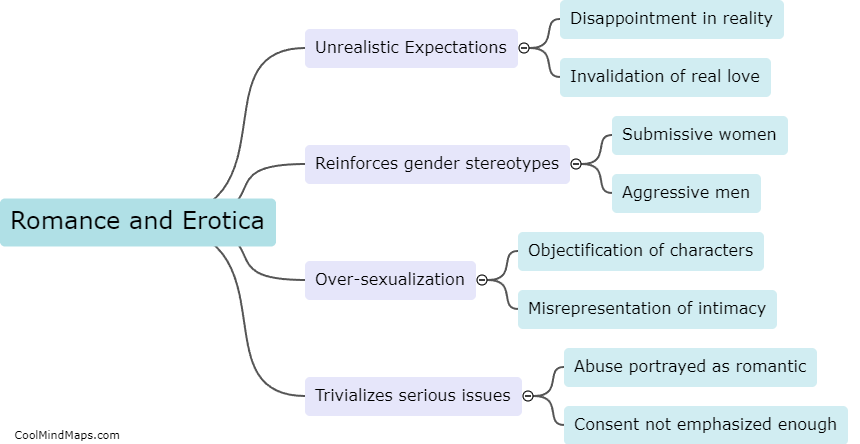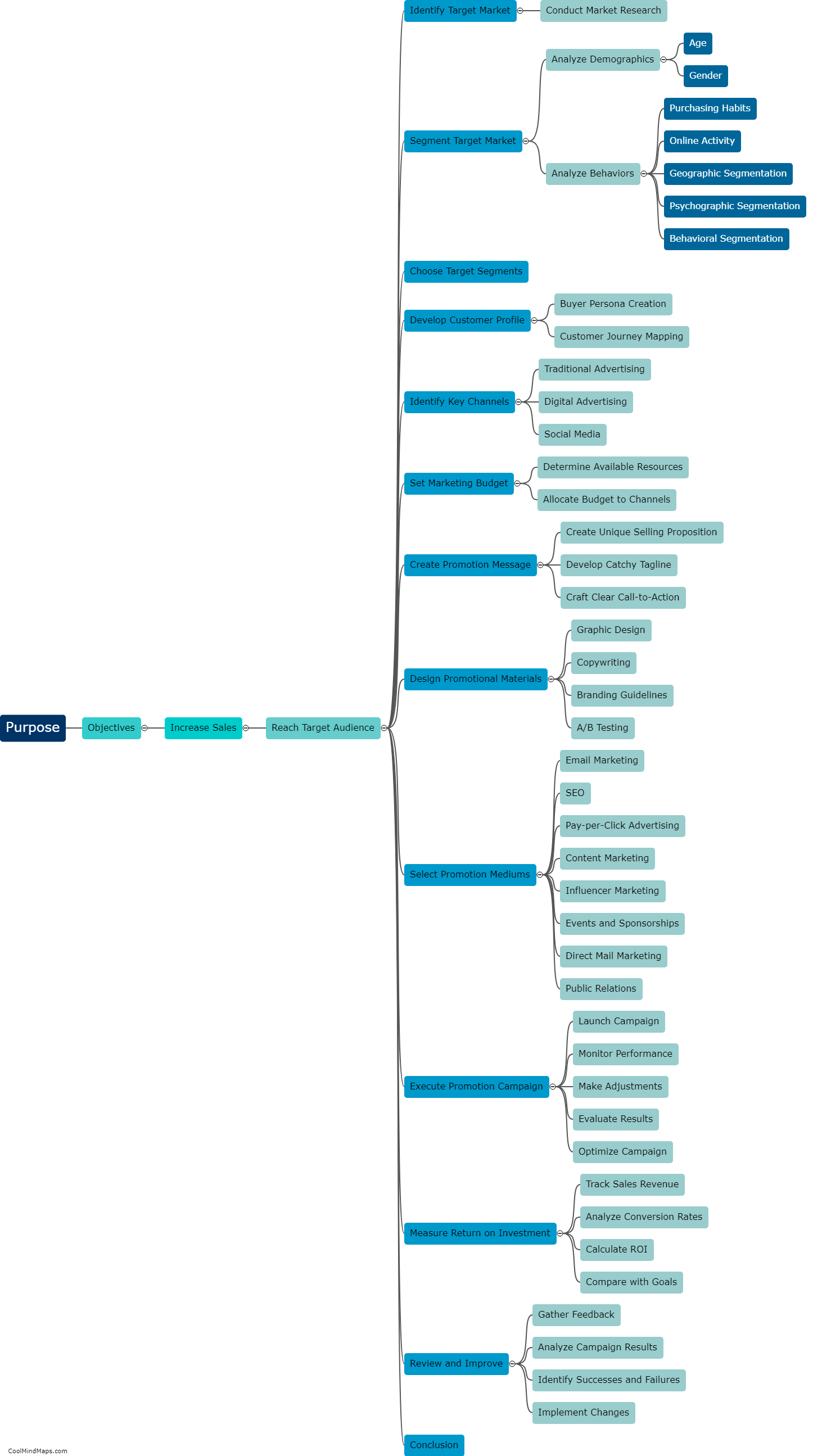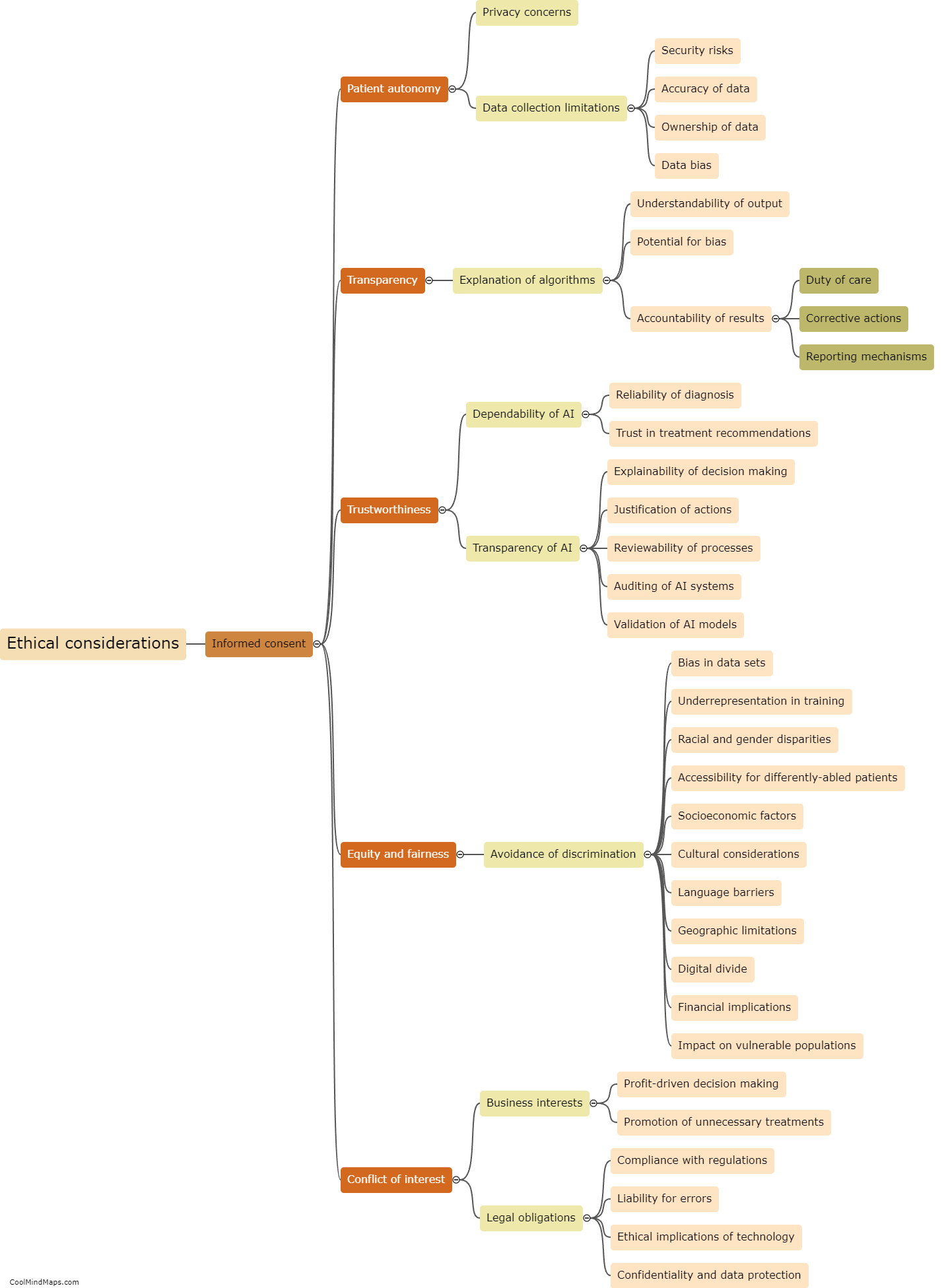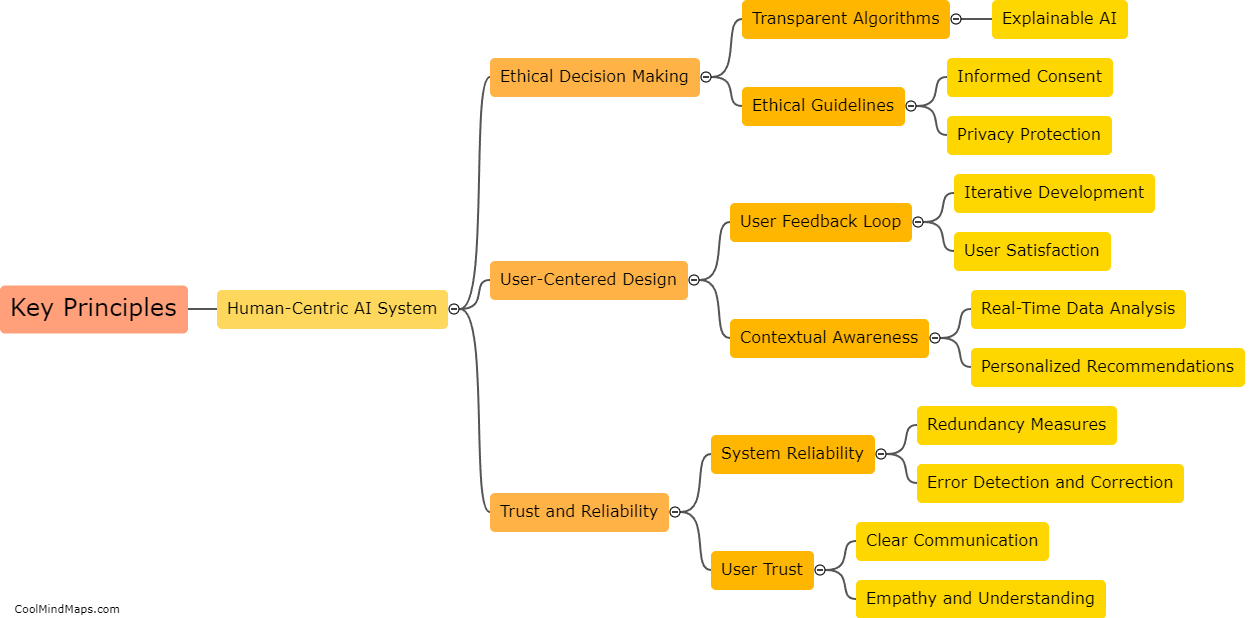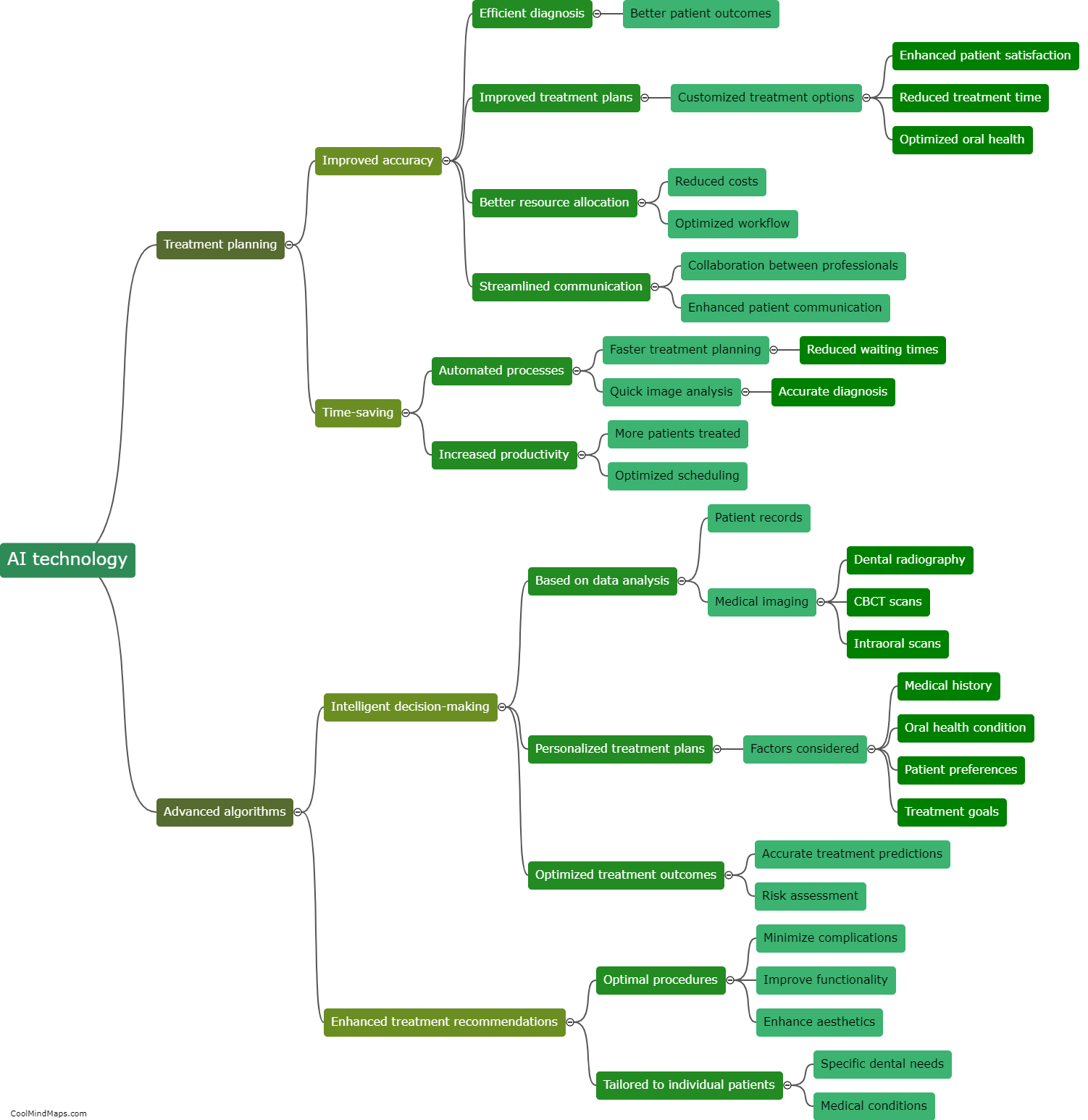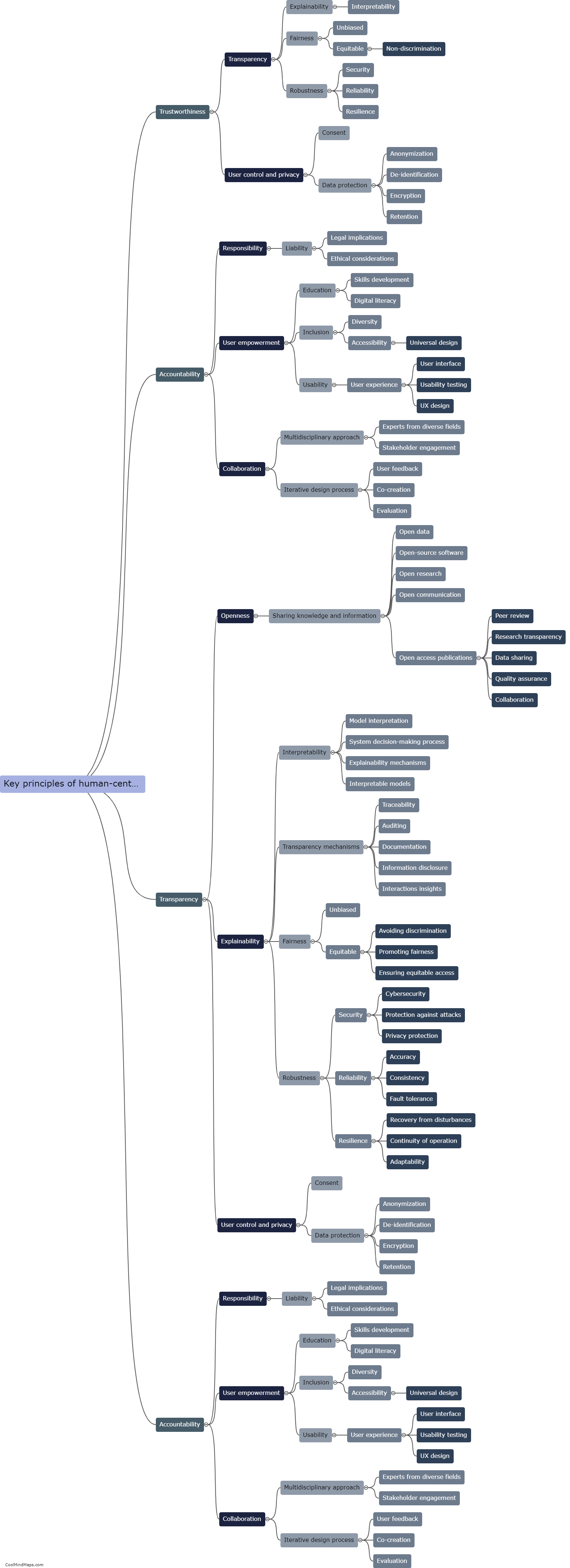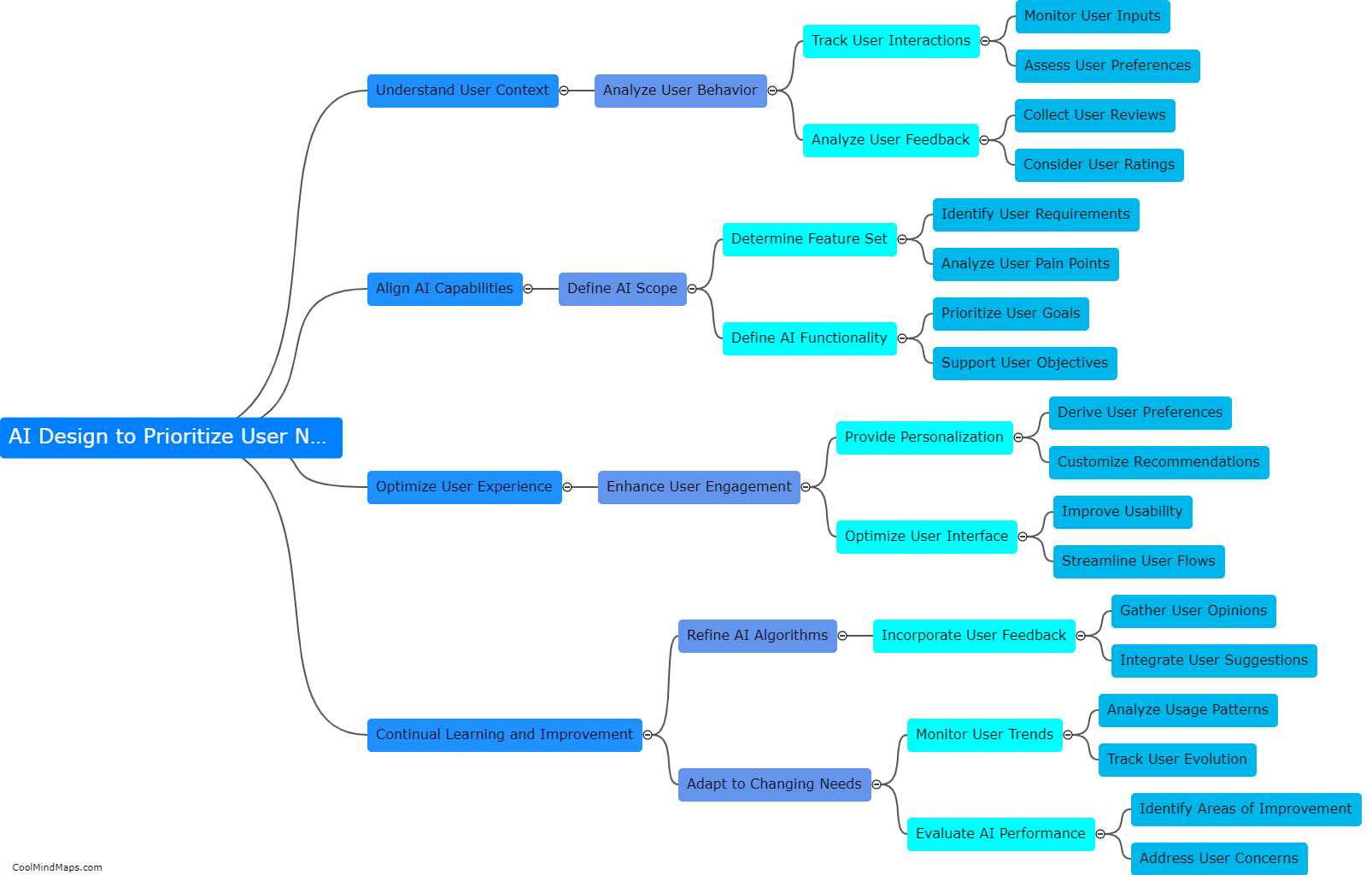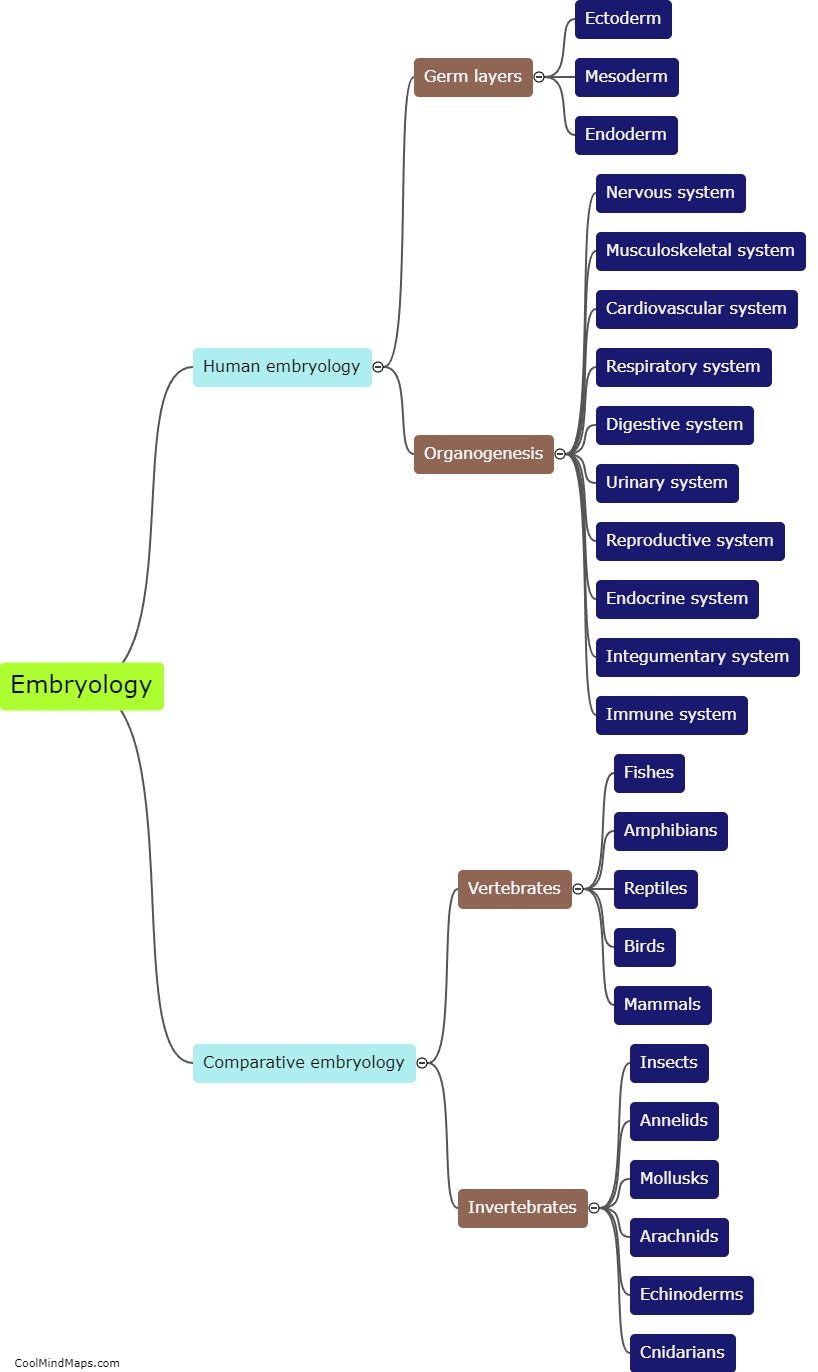What are the challenges and barriers in implementing human-centred AI design in dental care?
Implementing human-centred AI design in dental care comes with several challenges and barriers. Firstly, there is a lack of data and research specific to dental care, which can limit the development and training of AI algorithms. Additionally, ensuring the ethical use of AI in gathering and analyzing patient data is crucial, as privacy concerns and data security issues may hinder the acceptance of such technologies in dental practices. Furthermore, integrating AI systems with existing dental practices and workflows can be challenging, requiring extensive training and reorganization. Moreover, the high cost associated with AI implementation and maintenance may pose a financial barrier for smaller dental clinics or institutions. Lastly, the resistance to change among dental professionals and patients may hamper the widespread adoption of human-centred AI design in dental care. Overcoming these challenges will require collaboration between dental professionals, AI experts, and policymakers to foster an environment conducive to integrating AI technologies while prioritizing patient safety and care.
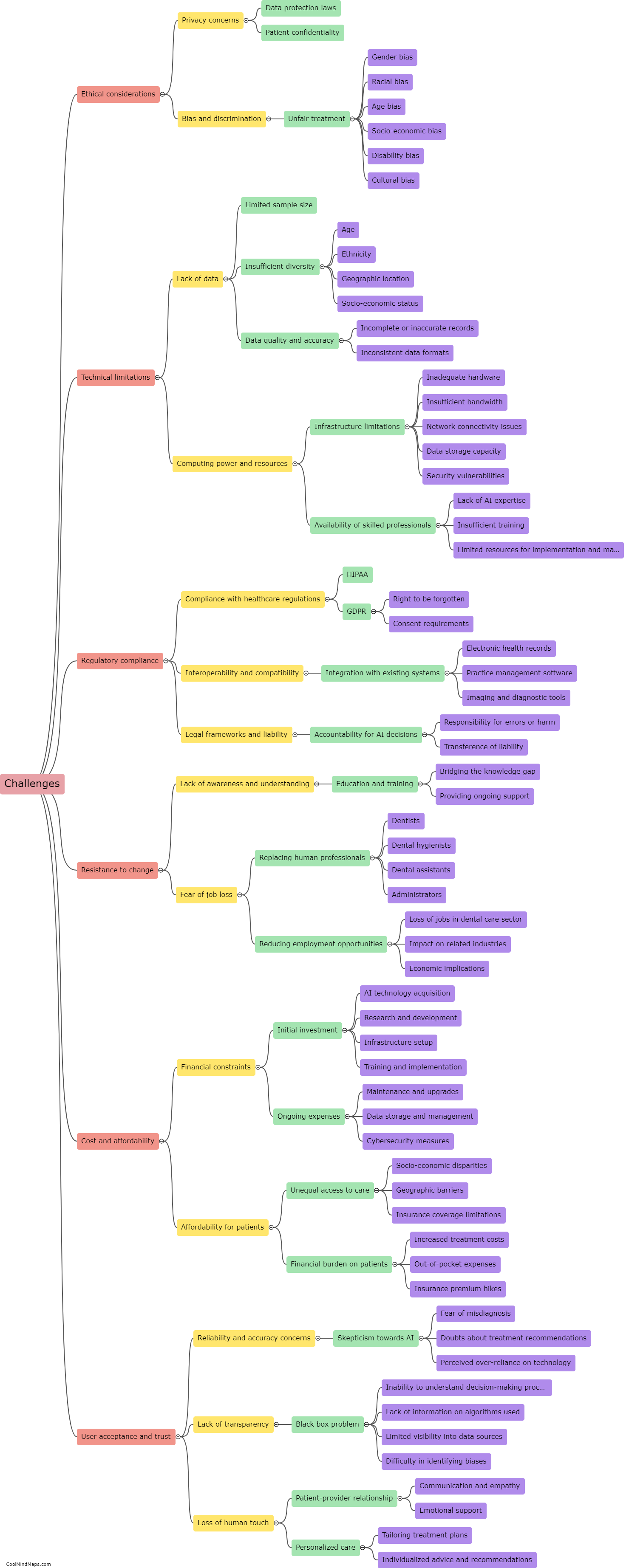
This mind map was published on 22 December 2023 and has been viewed 94 times.



